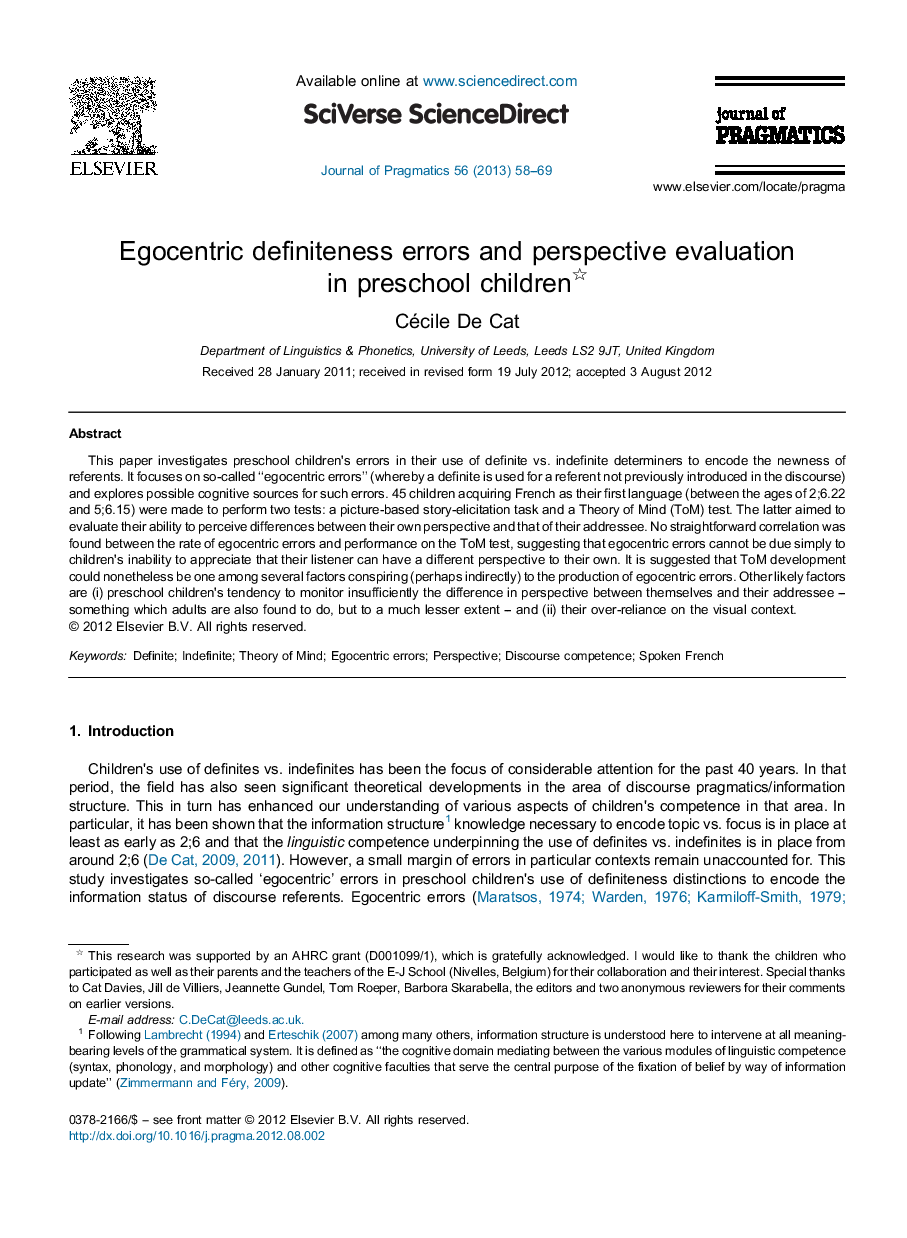| Article ID | Journal | Published Year | Pages | File Type |
|---|---|---|---|---|
| 932906 | Journal of Pragmatics | 2013 | 12 Pages |
This paper investigates preschool children's errors in their use of definite vs. indefinite determiners to encode the newness of referents. It focuses on so-called “egocentric errors” (whereby a definite is used for a referent not previously introduced in the discourse) and explores possible cognitive sources for such errors. 45 children acquiring French as their first language (between the ages of 2;6.22 and 5;6.15) were made to perform two tests: a picture-based story-elicitation task and a Theory of Mind (ToM) test. The latter aimed to evaluate their ability to perceive differences between their own perspective and that of their addressee. No straightforward correlation was found between the rate of egocentric errors and performance on the ToM test, suggesting that egocentric errors cannot be due simply to children's inability to appreciate that their listener can have a different perspective to their own. It is suggested that ToM development could nonetheless be one among several factors conspiring (perhaps indirectly) to the production of egocentric errors. Other likely factors are (i) preschool children's tendency to monitor insufficiently the difference in perspective between themselves and their addressee – something which adults are also found to do, but to a much lesser extent – and (ii) their over-reliance on the visual context.
